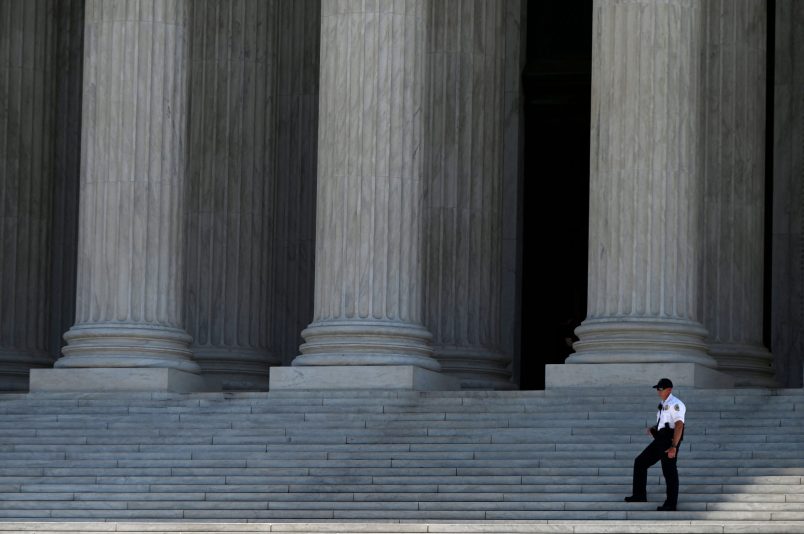The Supreme Court opened a new front in its war against the administrative state Monday when it took up a case that asks it to consider overruling a doctrine that has long helped form the basis of executive branch agencies’ authority.
The Chevron doctrine, stemming from a 1984 Supreme Court decision, gives government agencies deference in how they choose to interpret congressional statutes they administer. Congress traditionally delegates authority to agencies in broad strokes — say, for example, telling the Environmental Protection Agency to reduce air pollution in accordance with the Clean Air Act. Under Chevron, the EPA would be given leeway in using its expertise to determine how best to achieve that.
The right-wing legal world is passionately committed to weakening the administrative state, the parts of the government that are charged with regulating corporate polluters, protecting workers’ rights, dictating public health policy and more. That attitude has become evident in its members that sit on the bench, who have largely welcomed cases that challenge agency authority.
A group of familiar far-right groups, including the Cato Institute, National Right to Work Foundation, the Competitive Enterprise Institute and former Trump attorney John Eastman all filed amicus briefs asking the Court to take up the case.
The case tacked on the broad Chevron challenge as an additional question to the heart of the dispute, which centers on the National Marine Fisheries Service. The Court only agreed to take up that second part of the question, “whether the court should overrule Chevron, or at least clarify that statutory silence concerning controversial powers expressly but narrowly granted elsewhere in the statute does not constitute an ambiguity requiring deference to the agency.”
Justice Ketanji Brown Jackson recused herself.
The overturning of Chevron would be somewhat less of a legal earthquake than it would have been before the right-wing judges amassed such power on the Supreme Court, as they largely have ignored the doctrine when presented with agency actions they don’t like. But still, and enduringly at lower courts, the Chevron doctrine is a bedrock in agency authority — one that the Court seems primed to take a whack at.
Read the order here:







Chevron was unanimous. 9-0. Bill Rhenquist was totally fine with it.
Destroying the American Republic from within.
That is the Federalist Society’s ultimate goal.
With help from Moscow Mitch who engineered a supermajority on this Court to do just that.
The Federalist Society’s goal is propping up the pre-Lochner version of the American Republic. That Republic very much existed.
Well I have been wondering what version of society they are trying to enable. Can you provide a few high points? I assume destruction of unions, curtailing of most environmental regulations, removal of all standards that restrict enforced Christianity (in the sense that prayer comes back into schools) and elimination of social safety nets - sort of a high tech version of the robber baron era. Am I close?
If the Court is asking briefing on whether it should overturn Chevron, it’s already made up its mind.